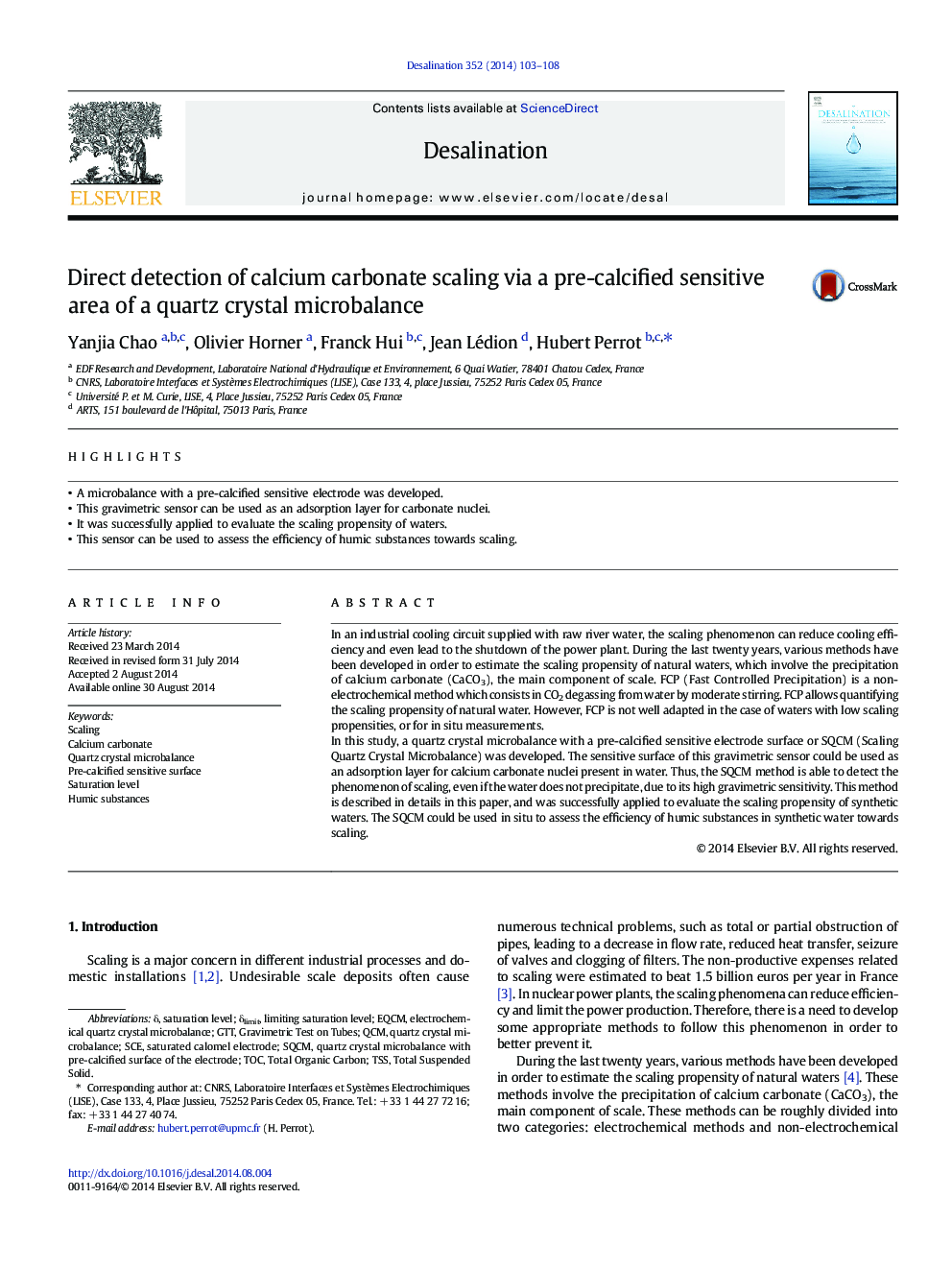| Article ID | Journal | Published Year | Pages | File Type |
|---|---|---|---|---|
| 623413 | Desalination | 2014 | 6 Pages |
•A microbalance with a pre-calcified sensitive electrode was developed.•This gravimetric sensor can be used as an adsorption layer for carbonate nuclei.•It was successfully applied to evaluate the scaling propensity of waters.•This sensor can be used to assess the efficiency of humic substances towards scaling.
In an industrial cooling circuit supplied with raw river water, the scaling phenomenon can reduce cooling efficiency and even lead to the shutdown of the power plant. During the last twenty years, various methods have been developed in order to estimate the scaling propensity of natural waters, which involve the precipitation of calcium carbonate (CaCO3), the main component of scale. FCP (Fast Controlled Precipitation) is a non-electrochemical method which consists in CO2 degassing from water by moderate stirring. FCP allows quantifying the scaling propensity of natural water. However, FCP is not well adapted in the case of waters with low scaling propensities, or for in situ measurements.In this study, a quartz crystal microbalance with a pre-calcified sensitive electrode surface or SQCM (Scaling Quartz Crystal Microbalance) was developed. The sensitive surface of this gravimetric sensor could be used as an adsorption layer for calcium carbonate nuclei present in water. Thus, the SQCM method is able to detect the phenomenon of scaling, even if the water does not precipitate, due to its high gravimetric sensitivity. This method is described in details in this paper, and was successfully applied to evaluate the scaling propensity of synthetic waters. The SQCM could be used in situ to assess the efficiency of humic substances in synthetic water towards scaling.
